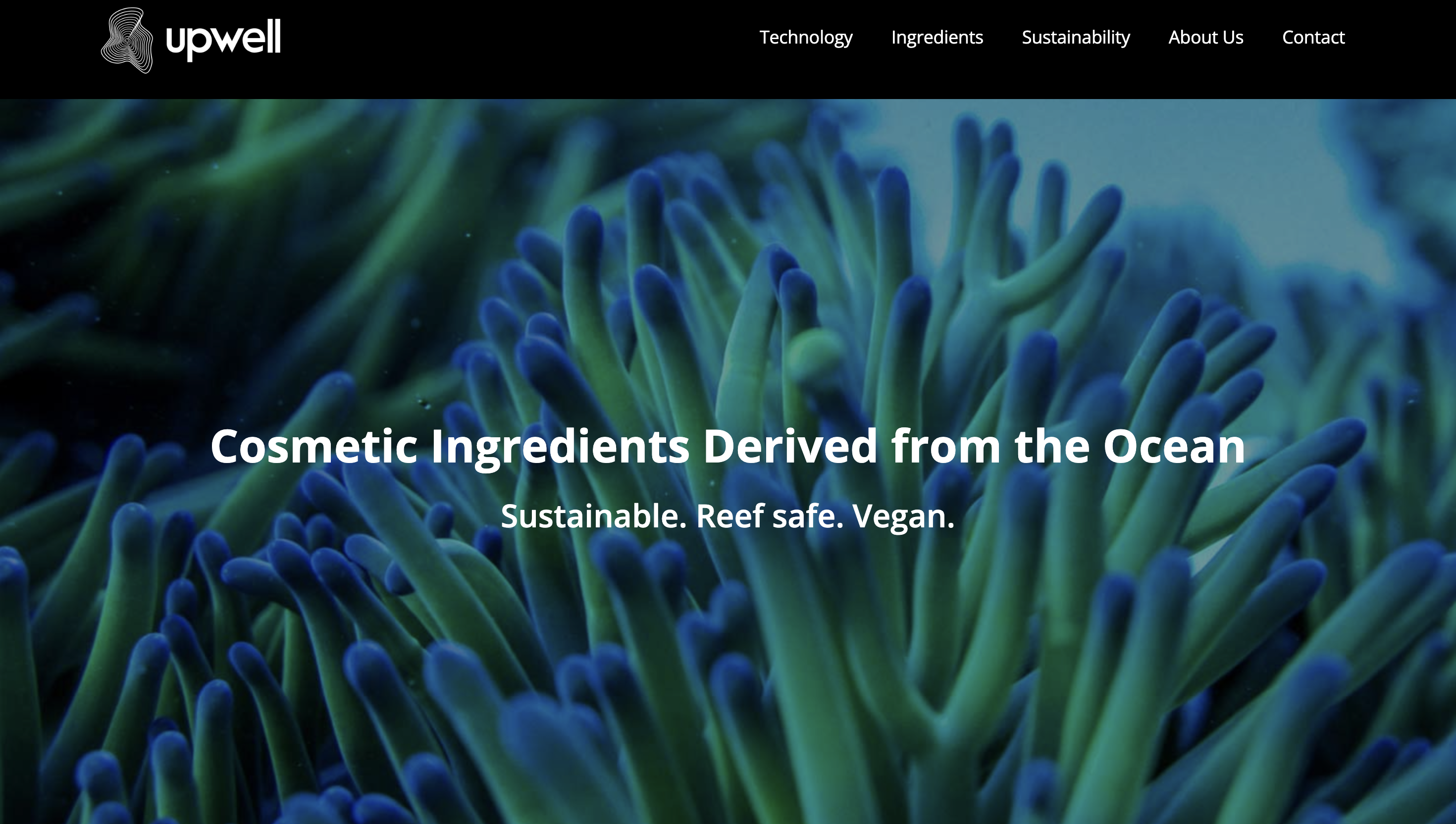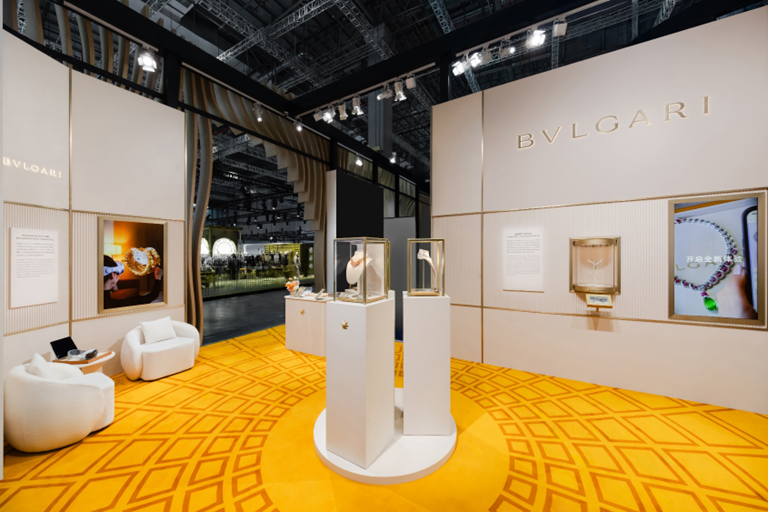Just two months after the California biomaterials startup Bolt Threads (NASDAQ: BSLK) went public on August 14, the company’s stock price has plummeted from its initial $7.29 to just $0.446 as of October 11, with its market capitalization dropping 94%, from $250 million to only $14.41 million.
As one of the pioneering companies in the sustainable “materials innovation” field, Bolt Threads was founded in 2009 and has been deeply engaged in this area for 15 years. The company once led the industry, attracting investments from major firms such as Baillie Gifford, Temasek, and Fidelity, raising over $330 million in total.
Bolt Threads also forged high-profile partnerships with leading luxury and sports brands like Kering, Patagonia, and Lululemon. However, despite its strong industry reputation, the company has struggled to emerge as a true winner in the increasingly competitive sustainable materials sector.
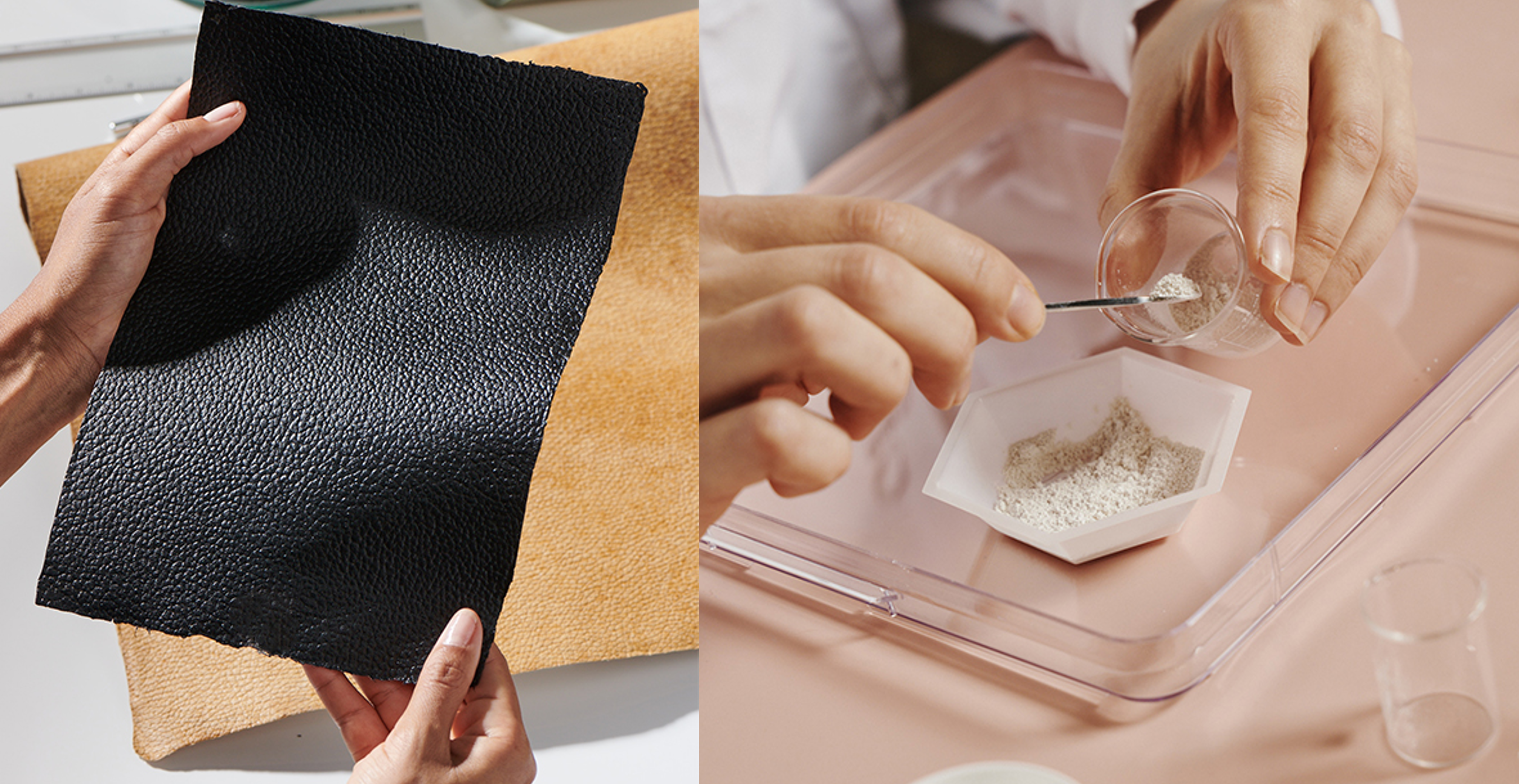
Above image: Mylo™ (left), b-silk™ (right)
In July 2023, the company’s signature mycelium-based material, Mylo™ (commonly known as “mushroom leather”), was discontinued due to funding issues.
In October 2023, Bolt Threads announced its public listing through a SPAC (Special Purpose Acquisition Company), officially going public on August 14, 2024, securing at least $35 million in funding.
During its listing process, Bolt Threads shifted its focus to its other flagship product, the synthetic spider silk material, b-silk™.
However, the financial market clearly did not have high hopes for this innovative material, as reflected in the sharp decline of Bolt Threads’ valuation.
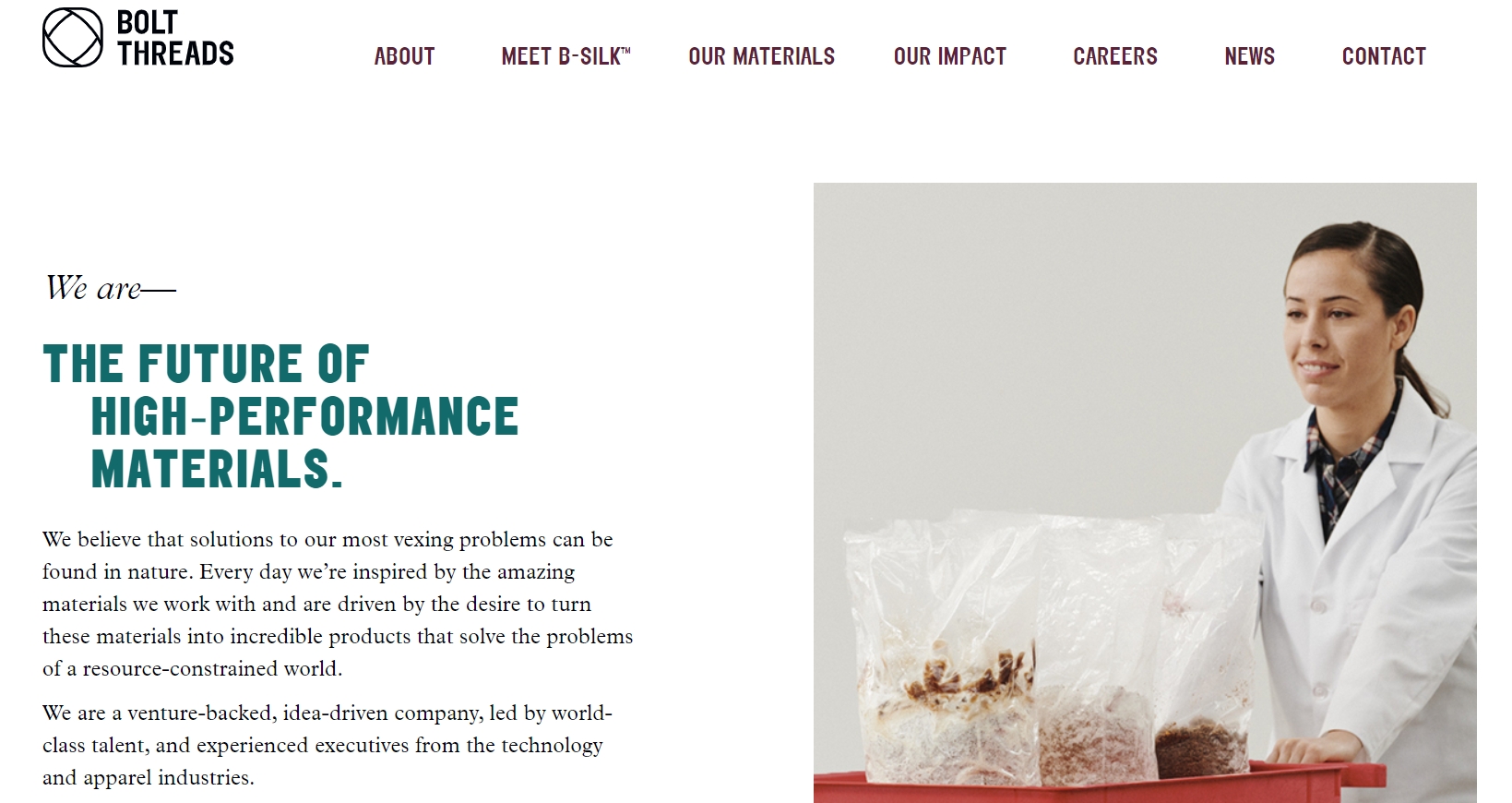
Scaling Up: A Persistent Challenge
When Mylo™ production ceased, CEO Dan Widmaier explained that the material was “very close” to commercial scale, but ultimately did not receive sufficient funding to reach that stage.
Meanwhile, competitors like MycoWorks and Ecovative, which also produce mushroom leather, have made greater strides in scaling up, either through opening their own factories or acquiring other companies to streamline supply chains and accelerate expansion.
Widmaier admitted at the time, “Scaling is the most expensive and challenging part, and there are no shortcuts.”
Now that the focus has shifted to b-silk™, how does Bolt Threads plan to tackle the scaling issue?
Thanks to the production characteristics of b-silk™, which do not require specialized equipment like Mylo™, Bolt Threads opted to partner with third-party factories that have already achieved large-scale production.
b-silk™ is a biodegradable, bio-based vegan polypeptide. Inspired by spider silk, Dan Widmaier, who holds a PhD in Chemistry and Biochemistry from the University of California, developed b-silk™ through the fermentation of genetically engineered yeast, water, and sugar.
At its core, b-silk™ is a protein that can be used as a silicone substitute in personal care products, or it can be spun into fibers using wet spinning processes similar to those used to create Lyocell (Tencel), resulting in what is commonly referred to as “synthetic spider silk.”
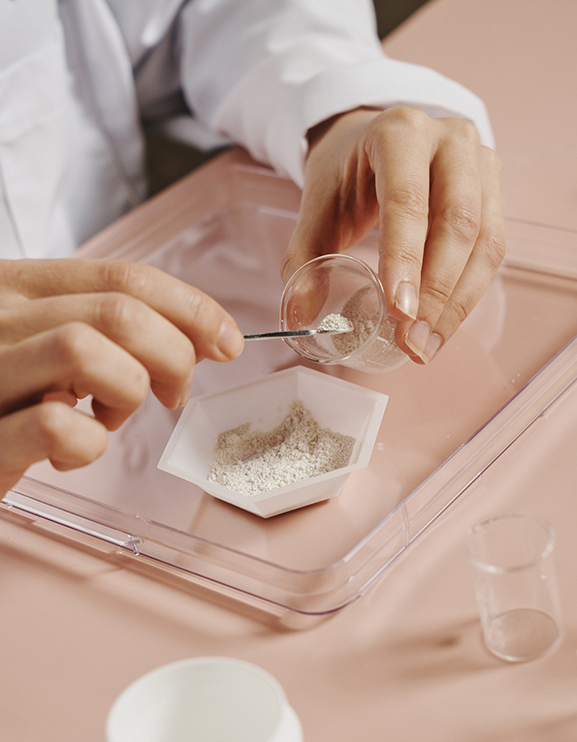
Above image: b-silk™ material
In fact, as early as August 2021, Bolt Threads partnered with Ginkgo Bioworks, a leader in synthetic biology, to leverage its strain engineering capabilities and improve the production efficiency of b-silk™.
In its October 2023 investor report, Bolt Threads revealed that new manufacturing partners had submitted bids, which would “significantly reduce prices” upon partnership.
Notably, Bolt Threads had also collaborated with Ginkgo Bioworks in October 2022 to optimize the production efficiency of Mylo™.
Whether this collaborative approach will prove successful remains to be seen, but according to its investor report, the company is “close to commercial scale.”
Chasing Trends or Natural Business Progression?
Founded in 2009, Bolt Threads initially focused on producing Microsilk™, a synthetic spider silk made from yeast fermentation. By 2016, it had partnered with outdoor brand Patagonia to develop eco-friendly materials, and in 2017, launched the first-ever limited-edition necktie made from synthetic spider silk.
However, after launching Mylo™ in 2018, the company shifted its focus to the trending field of mycelium-based materials. Competitors like MycoWorks and Ecovative continued to double down on the mushroom leather trend, supported by large luxury companies like Hermès and investment firms like Viking Global Investors. Mylo™ also secured collaboration opportunities with high-profile brands such as Kering, Adidas, and Lululemon.
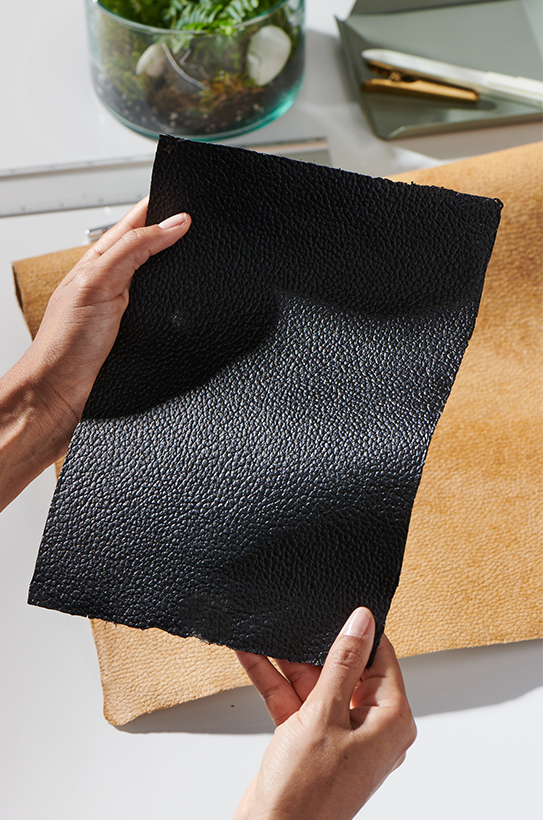
Above image: “Mushroom Leather” Mylo™
According to Sourcing Journal, Bolt Threads once believed that “products like Mylo™ would make a bigger commercial and environmental impact.” The recent pivot back to b-silk™ seems to signal a “return to its roots.”
CEO Dan Widmaier, however, views it differently, stating that the shift is “just another natural step in the business’s development.” He noted that it’s common for new technology ventures to explore different products before focusing on one that has strong market appeal and future prospects.
While Widmaier has not revealed whether the new funds raised through the company’s public listing will be used to revive Mylo™, the investor report heavily focuses on b-silk™. In an interview with the Financial Times, Widmaier indicated that the funds will be used to scale b-silk™ distribution and lower production costs.

Challenges in Both Fashion and Beauty
In an interview with Sourcing Journal, Widmaier emphasized, “I truly believe the demand for sustainable alternative materials in fashion is real.” He added, “I think there’s a big misunderstanding about what it takes to bring deep technology solutions to market in a way that benefits everyone.”
While Bolt Threads initially targeted the textile and fashion industries, it is now focusing on the beauty and personal care sectors for b-silk™ applications.
In its investor report, the company outlined b-silk™’s functional advantages and potential applications in skincare, cleansing, hair care, makeup, and sunscreen products.
However, back in 2018, Bolt Threads had already launched a direct-to-consumer skincare brand, Eighteen B, which featured b-silk™ in products such as a $75 moisturizer and a $95 face cream. The Eighteen B products have since been discontinued.
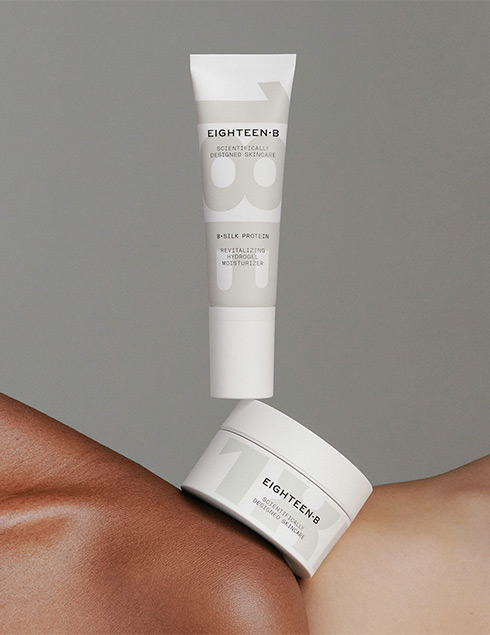
Above image: Eighteen B
In 2020, Bolt Threads shifted its strategy to selling b-silk™ directly to other companies. It partnered with vegan beauty company Vegamour, incorporating b-silk™ into its shampoo and conditioner products.
To date, b-silk™ has not secured the same level of high-profile brand collaborations as Mylo™.
Meanwhile, other companies producing synthetic spider silk, such as Japan’s Spiber, U.S.-based Kraig Biocraft, and Israel’s Seevix Material Sciences Ltd., have progressed to various stages of mass production and application.
Kraig Biocraft, for instance, began production at a new factory in September, which is eight times larger than its previous facility, with an annual capacity of 25 tons.
Seevix Material Sciences Ltd. was acquired by Japanese sports giant ASICS in 2020, while Spiber’s factory in Thailand went into production in 2022, with another facility under construction in Iowa, U.S. Spiber has also formed a B2B partnership with Chinese cashmere yarn company Consinee and launched consumer products in collaboration with brands like Goldwin and Sacai.
In the beauty sector, European supplier of synthetic silk biopolymers AMSilk was acquired by Swiss fragrance and flavor manufacturer Givaudan in 2022. Earlier this year, AMSilk partnered with Danish biotech company 21st.BIO to scale up production, increasing output from several kilograms to several tons.
Clearly, whether in fashion or beauty, Bolt Threads faces significant challenges in scaling up its applications, with considerable pressure from competitors. Whether it can overcome these hurdles remains to be seen.
| Image Credit: Bolt Threads Official Website
| Editor: LeZhi


